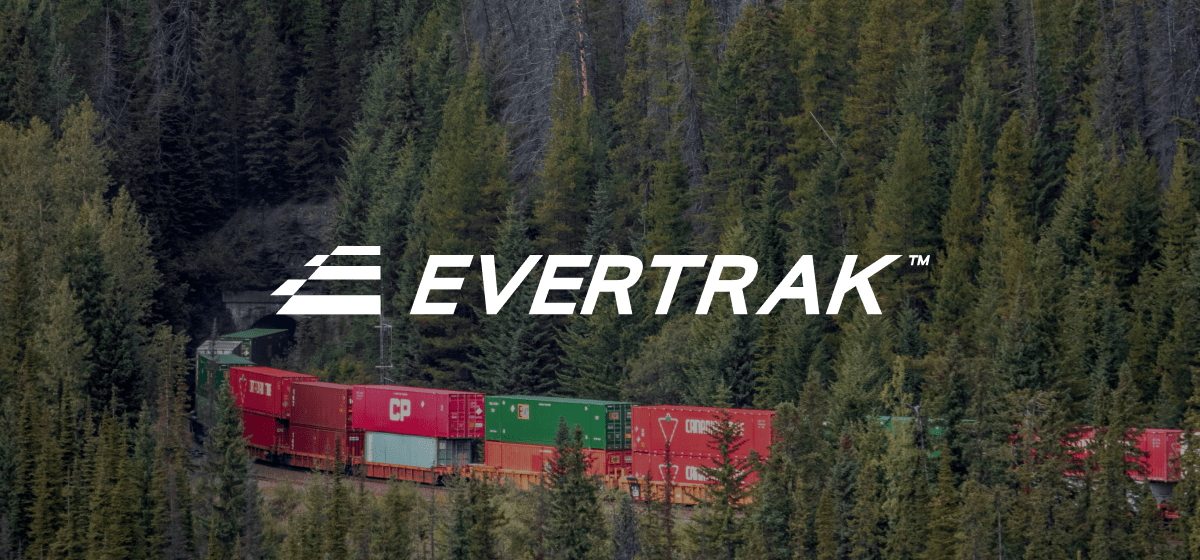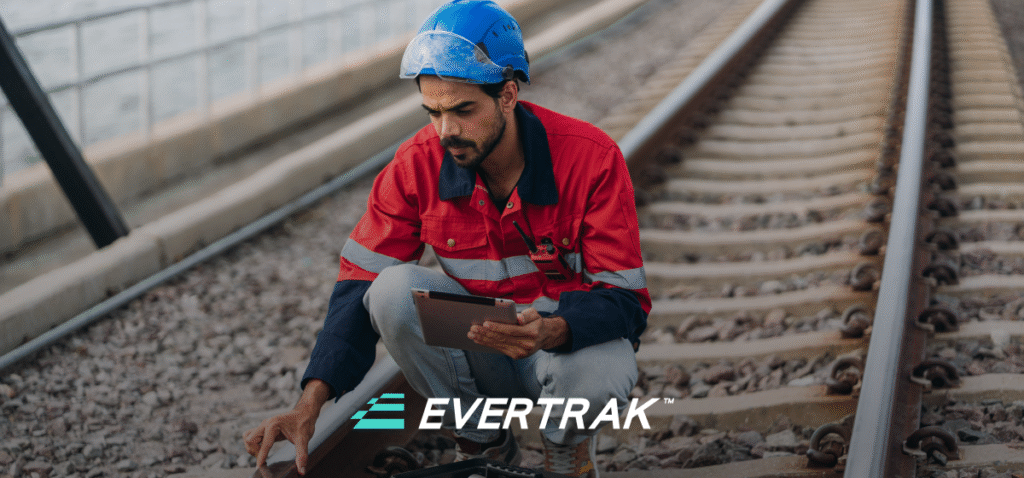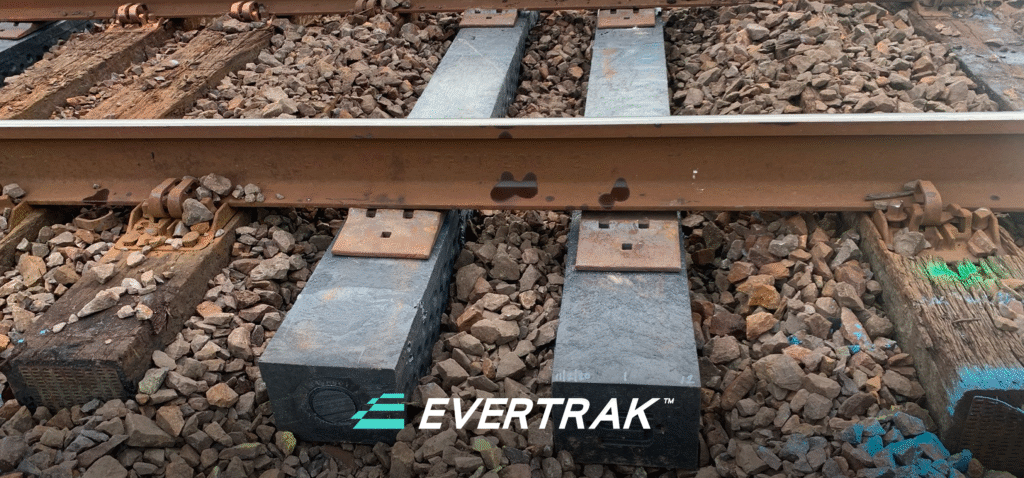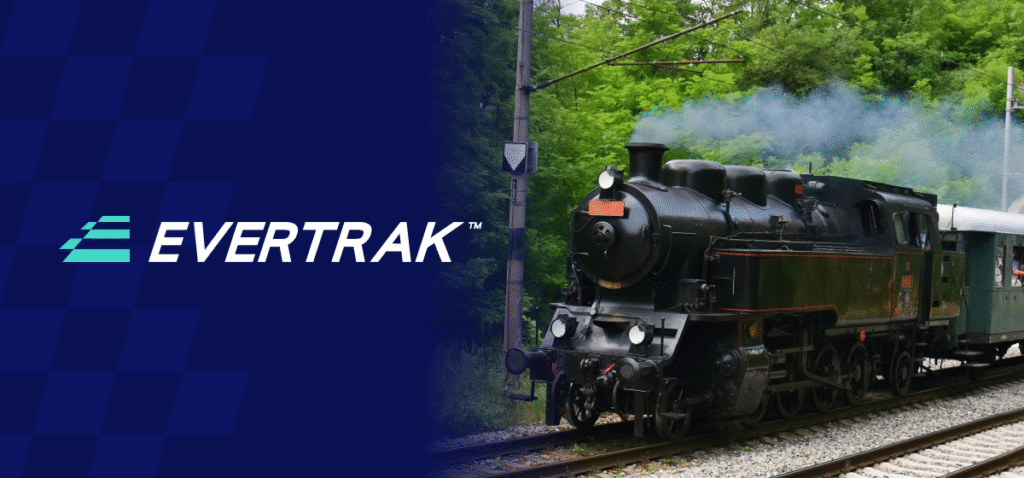Though the railroad sector is often overlooked in sustainability discussions, it is heavily impacted by extreme weather. This realization forces us to address a significant challenge: There are no more old-growth trees to meet the needs of railroad operators in high-decay zones. This issue affects major railroad operations and has far-reaching environmental consequences.
The Environmental Toll of Traditional Railroad Ties
Deforestation is a critical concern in the production of wood railroad ties. Considering there are approximately 3,250 wood ties per mile and over 140,000 freight miles of railroad tracks connecting North America, the amount of wood needed to support industry needs is high. This massive demand for mature hardwood is unsustainable, especially considering the quality of available timber has significantly decreased over time.
Centuries-old trees have been harvested, leaving new-growth trees that are inadequate when used for the same purpose. This decline in quality further exacerbates the railroad tie replacement cycle, creating a vicious circle of resource consumption.
Moreover, the use of creosote, a chemical preservative applied to wood ties, presents additional environmental and health risks. Creosote can contaminate soil and water, harm wildlife, and pose serious human health hazards. And while creosote extends the lifespan of wood ties, it doesn’t prevent eventual rotting and introduces toxic substances into the environment.
Evertrak: Laying the Tracks for Sustainable Railroad Infrastructure
In response to these challenges, Evertrak has developed an innovative solution: Glass Fiber Reinforced Polymer (GFRP) railroad ties made from recycled plastic. This groundbreaking product addresses the most pressing pain point for railroad operators: finding a replacement that is as strong as wood. Evertrak’s composite ties fit the bill and address multiple environmental concerns while meeting the rigorous performance standards of the railroad industry. Validated fatigue models and real-world, in-track performance demonstrate that our ties perform at 3x the AREMA standard for composite ties, making them a crucial solution for major railroads.
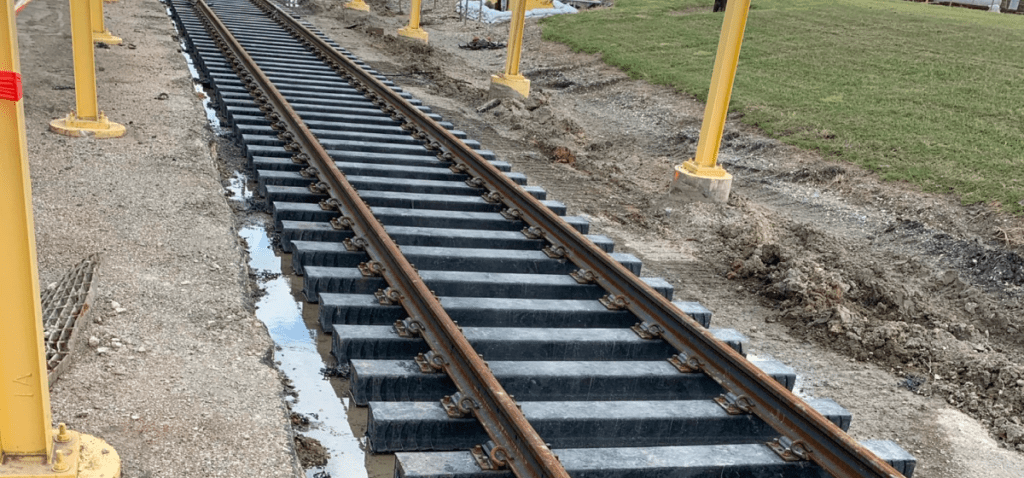
Our GFRP ties offer several key benefits:
1. Recycled Materials
At a production rate of 1 million ties per year, Evertrak sequesters 180 million pounds of plastic annually, diverting waste from landfills and oceans.
2. Extended Lifespan
Evertrak meets its customers’ requirement for 50 years of service life in favorable or moderate climates and lasts longer than wood ties in high-decay zones. The average lifespan of wood ties in high decay zones ranges from 8-12 years.
3. Chemical-Free
Our composite materials eliminate the need for creosote wood treatments and other toxic preservatives that have a negative health and climate impact.
4. Reduced Deforestation
Our annual production rate eliminates the need to cut down 250,000 mature trees.
At Evertrak, we aren’t just offering an alternative product—we’re providing a solution to a real problem in the industry while simultaneously addressing critical environmental issues and raising industry standards.
Transforming the Railroad Industry
The widespread adoption of sustainable practices is transforming the railroad industry and pushing innovation forward in the United States. From concrete and steel ties to composite ties, the availability of products used to create alternative types of ties is growing, showing a mounting need to adapt and find a solution that works as well as wood without the negative environmental impacts.
By using Evertrak’s GFRP ties, railroads can lead the charge in reducing their ecological footprint while gaining significant operational benefits. The Total Cost of Ownership of Evetrak ties is significantly lower than wood ties for ties that are being replaced in 8-12 years. This benefit translates to fewer replacements, reducing maintenance costs and service disruptions over time. And such improved efficiency is particularly crucial in the era of Precision Scheduled Railroading, where uptime is paramount.Furthermore, the consistency and durability of Evertrak ties offer railroads a more reliable infrastructure. Even major railroads like Union Pacific recognize the need to embrace alternatives and invest in composite materials. At Evertrak, we’ve installed over 100,000 composite railroad ties with zero claims. This track record builds confidence in our product and the sustainable future it represents.

The Path Forward: Sustainability in Motion
As environmental awareness grows, the railroad industry has a unique opportunity to lead in sustainable infrastructure. Evertrak’s innovative approach demonstrates that it’s possible to address operational challenges faced by major railroads while significantly reducing environmental impact.
In fact, we’re proving that there’s no trade-off between the business case and the case for sustainability. By choosing Evertrak ties, railroads are investing in superior performance, long-lasting value, cost savings, and a more sustainable future for the industry.
The depletion of resources for traditional wood ties is a wake-up call for the entire sector. It’s time for railroads to embrace sustainable alternatives that not only solve immediate operational issues but also contribute to long-term environmental goals.To learn more about how Evertrak’s sustainable railroad ties are reshaping the industry and contributing to a greener future, check out our blog post, Turning the Tide on Plastic Waste: Rethinking Railroad Infrastructure or contact us here.

